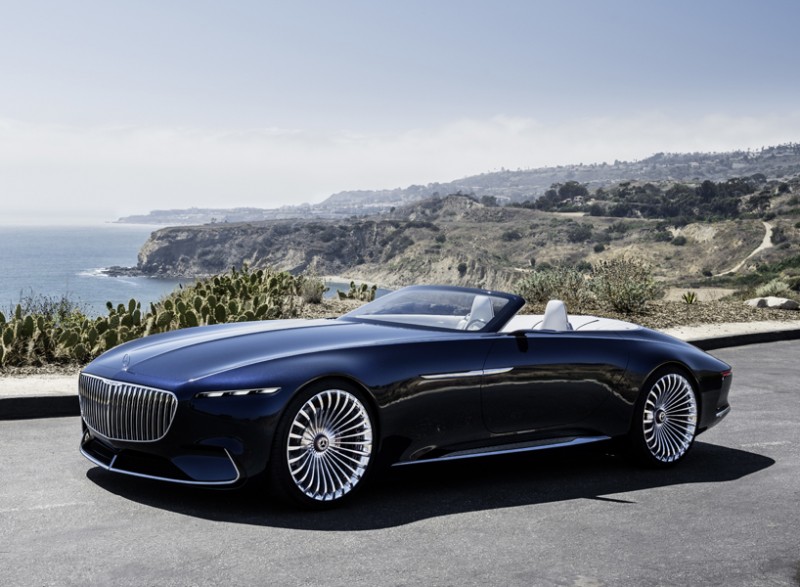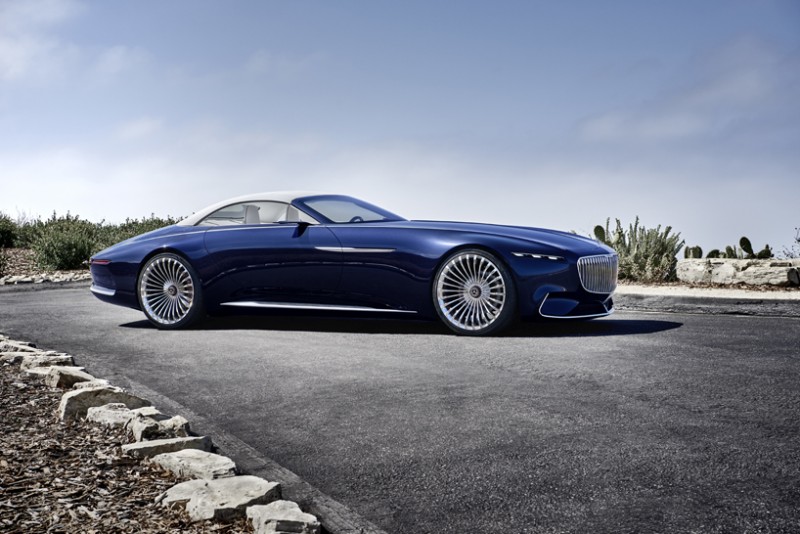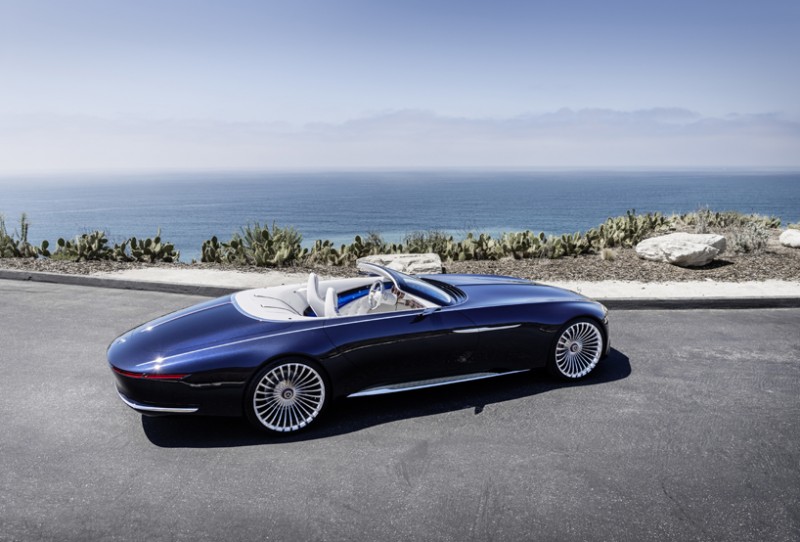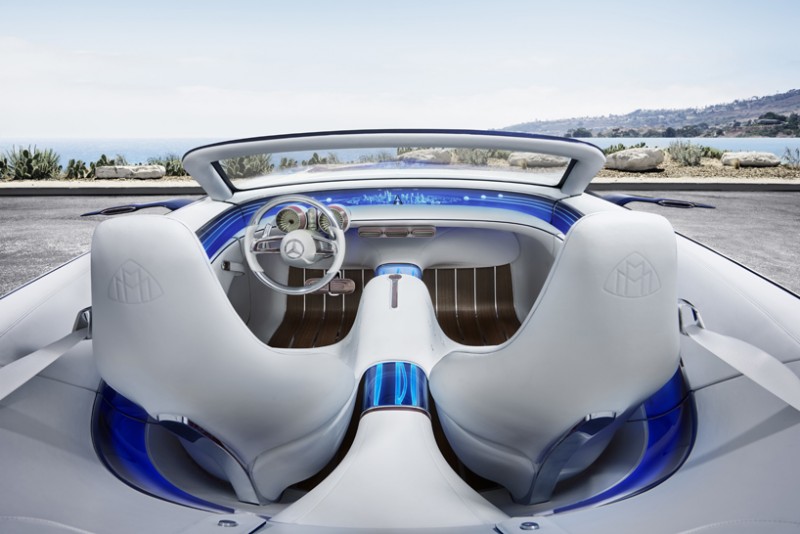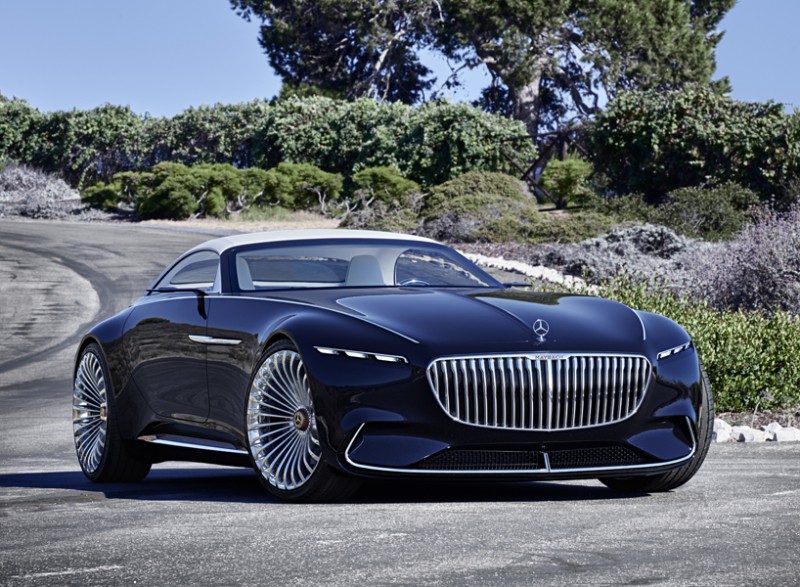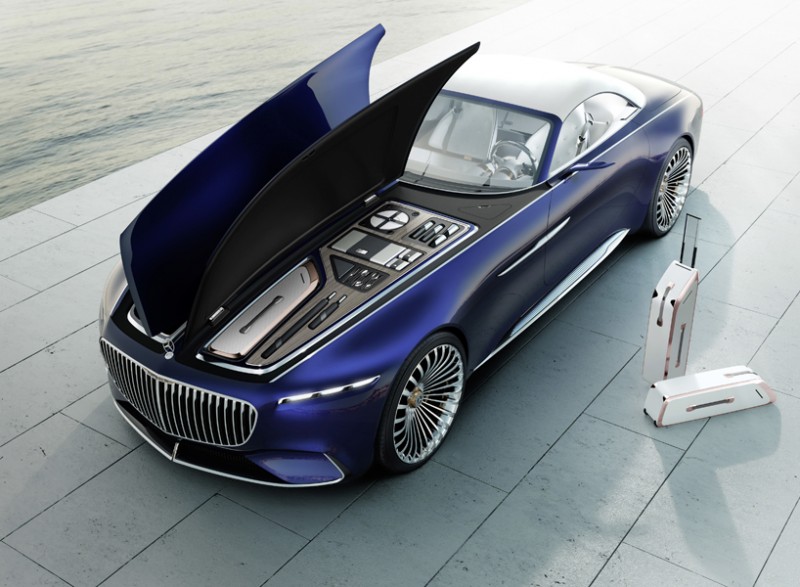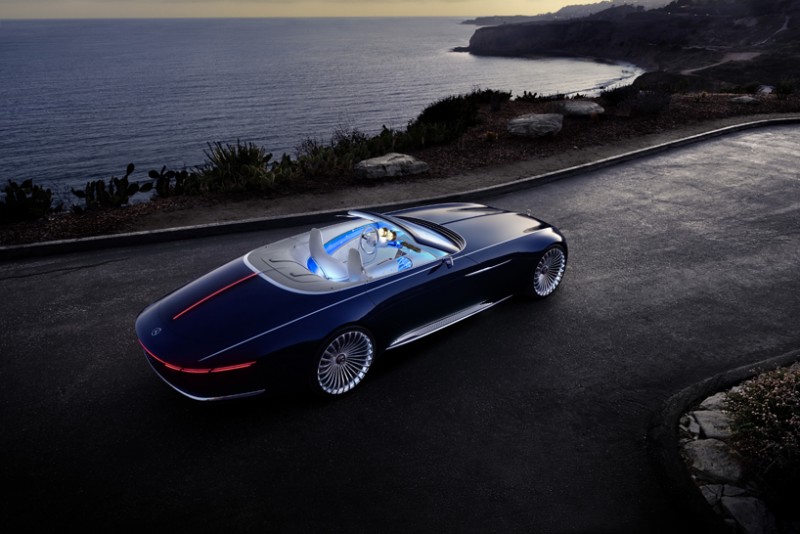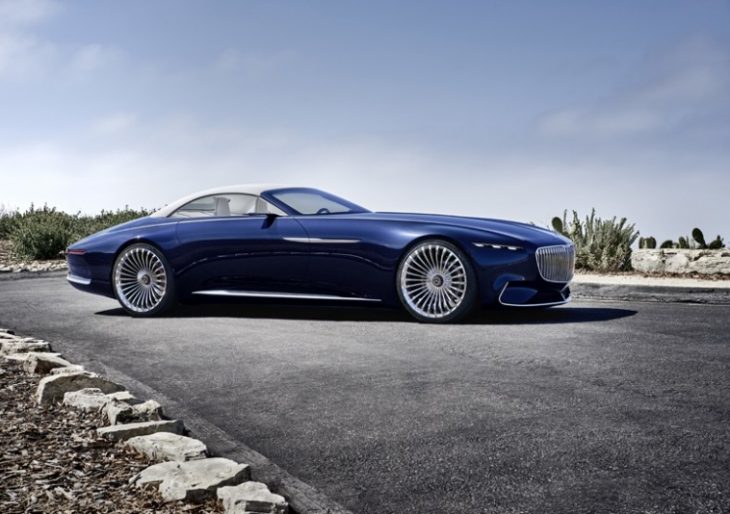This year’s Pebble Beach concourse has now seen two concept cars which harken back to the idealistic era when the freedom represented by the airplane influenced the automobile. But while the Prototype 9 unveiled by Infiniti last week conjured early racers’ emphasis on fuselage design elements as a novelty, this Mercedes-Maybach concept showcases a new touring car paradigm which uses the historical as a springboard into the future. As a symbol of the potential hiding in the contemporary, the Maybach 6 Cabriolet manages to create a sense of idealism of its own.
Informed by Daimler and Maybach designs, and the intoxicating sense of limitlessness that emerged as the Great Depression waned, the car is also the purest expression of Mercedes as a perennial leader in avant-garde automotive design. The number 6 Cabriolet is largely due to the creative leadership of imaginative guiding spirit Gorden Wagener, and shares design elements with the Concept A that Mercedes unveiled at Shanghai this spring: an acute expression of continuity, an extremely prominent grille, and a lack of flourishes—especially creases.
There’s a lot of discussion in the Mercedes press release about the ‘sensual…emotional design’ language of the number 6 Cabriolet. They’re talking about poetry, then, however elliptically. The Concept A, in turn, was introduced with Mercedes’ stated emphasis on sensual purity. As expressed by the Concept A, and the number 6 Cabriolet as well, this poetry is far nearer to Li Po’s art than Goethe’s.
What is most interesting, though, is how Mercedes is aligning the Maybach name—a name associated with aristocratic insouciance, unabashed luxury, and streamline moderne glamour—with the ecologically relevant. The marque could simply be used to peddle beautiful, flashy symbols of excess, but with the number 6 Cabriolet—and the number 6 Coupé which preceded it by a year—it is instead making the brand a figurehead which merges the trappings of success with the overall future of the automobile.
